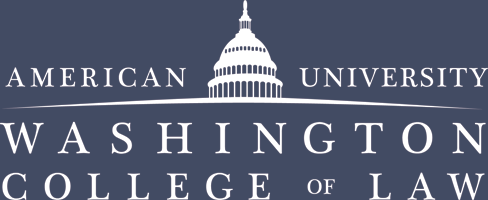April 6, 2012 at 1:15 pm
· Filed under Public Interest Jobs
The Assistant Director, Public Interest (Assistant Director) will be responsible for developing new programs, bringing coherence to WCL’s vision and managing the many on-going public interest/pro bono projects sponsored by WCL. 
This position will be an advocate for public interest law and will be responsible for maintaining an institutionalized, formal Pro Bono Honors Pledge Program that promotes specific work opportunities and offers students guidance in selecting pro bono projects.
The Assistant Director will encourage students to volunteer and become active participants during their law school career. The individual will also have oversight responsibilities for the Public Interest Public Service (PIPS) Scholarship Program and will work with each class of PIPS scholars to focus on various public service commitments while in law school.
Permalink
April 6, 2012 at 9:07 am
· Filed under Legal Education, News and Developments, Public Interest Jobs, Public Interest Law News Bulletin, The Legal Industry and Economy
By: Steve Grumm

Happy Friday, dear readers. It pleases me to report that the Glorious Philadelphia Phillies Baseball Franchise is undefeated this season, having shut out the Pirates of Pittsburgh yesterday. While we’re talking baseball, I encourage you to check out the artwork of Will Johnson. Johnson, who is steeped in baseball history, produced a series of paintings that profile some of the game’s most fascinating and impactful personalities, like this one of Cubs great Mordecai Brown. (That’s for you, Mr. Glaves.) Johnson is also the frontman of Centro-matic, a great rock band out of Denton, Texas.
This week in access-to-justice, pro bono, and related public interest news:
- sharing the wealth across counties to fund indigent defense in Nebraska;
- making the business case for nonlawyer professionals to provide pro bono services;
- the early end of the Cincy defender’s tenure;
- the Wash. State Bar Association’s “Moderate Means” program provides sliding-scale legal help to the (not quite) poor by partnering with the state’s 3 law schools;
- the Virginia Legal Aid Society is charting a course to maximize services with less anticipated future funding;
- how law student pro bono is done by those hippie kids in Berkeley;
- the Early Resolution Project in Alaska seeks to make the legal dimension to divorces quick, inexpensive, and as pain-free as possible;
- more nonlegal pro bono, this time focusing on the value of “secondment” projects;
- the Media Access Project will soon cease to be;
- a New Hampshire lawmaker opposes the state’s move from a voluntary to mandatory IOLTA jurisdiction.
- the Illinois AG and defender press for funding to boost attorney salaries.
The summaries:
- 4.5.12 – a Nebraska state legislator has withdrawn a bill that would have diverted funds away from indigent defense in rural counties. (Story from the Omaha World-Herald.)
- 4.5.12 – a Taproot Foundation blog post explores the business case for pro bono, with a focus on how pro bono provides experiential learning opportunities. But here, we’re dealing with pro bono by nonlawyer professionals who offer free technical and strategic planning assistance to nonprofits. Recently I’ve seen more and more coverage of “nonlegal pro bono.” This probably speaks to 1) the increasing sophistication of the Corporate Social Responsibility (CSR) movement, and 2) the post-recession need among resource-strapped nonprofits for free professional services.
- 4.4.12 – the rocky tenure of Cincinnati’s public defender came to an early end after a report pointed to an abrasive management style and failure to inspire trust among staff. Full story from the Cincinnati Enquirer.
- 4.4.12 – the Washington State Bar Association’s Moderate Means “low bono” program: “Washingtonians of moderate means now have a better chance of getting legal representation when they need it. More than 350 lawyers have volunteered to adjust their fees on a sliding scale to accommodate people who are neither rich nor poor. The attorneys are part of a partnership between the Washington State Bar Association (WSBA) and the state’s three law schools…. People are eligible for the Moderate Means Program if their household income is between 200 percent and 400 percent of the federal poverty level for their family size. That would be household incomes between $45,622 and $91,244. The bar association said that includes about 30 percent of Washington households.” Full piece in the Seattle Times. And here’s more from the Seattle Business Journal.
- 4.4.12 – “Because of federal budget cuts, the Virginia Legal Aid Society needs help to determine how best to use limited resources to help residents. While more low-income residents in Danville and Southside need free civil legal services every year, Legal Aid revenues have declined by about 20 percent in the past two and a half years, said VLAS Executive Director David Neumeyer. Next year, Legal Aid faces a deficit of $500,000 for a $2.6 million budget. Without significant help, the nonprofit law firm would need to reduce staff or close an office next year, he added.” VLAS is seeking community input as it charts a course forward. (Story from Roanoke-based WSLS.)
- 4.4.12 – the Early Resolution Project set up by an Alaska judge uses pro bono attorneys to help bring about amicable – and brief – divorce resolutions. The underlying philosophy is that the longer divorces stay in litigation, the more painful and financially draining they are likely to be for the parties. So brief, low-stress proceedings are the ERP’s goal. Here’s the story from Alaska Public Radio and NPR.
- 4.3.12 – more nonlegal pro bono. Global public relations outfit Ketchum blogs about the advantages of pro bono “secondments,” through which Ketchum professionals are embedded within a nonprofit organization to provide pro bono services for a period of time. This pro bono model is of course not new to the law firm world, but it is still interesting to see how and why pro bono work is structured in other professions.
- 4.3.12 – in the recession’s wake New Hampshire’s high court converted the state’s IOLTA program from voluntary to mandatory in order to boost funding for beleaguered legal services providers. One state legislator, attorney Gregory Sorg, is proposing a bill to undo this change and return to a voluntary program. “’I moved to New Hampshire because this was the one state left in the Northeast where a person could own his own soul’, says [Sorg]…. But to [New Hampshire Legal Assistance exec. director John Tobin,]…Sorg’s focus on the principle of the issue ignores the very real consequences. ‘Even if we lose the funding that costs us one lawyer or one paralegal, that means that several hundred New Hampshire people will not have an advocate,’ says Tobin. ‘And that means that some of them will lose their housing, some of them won’t get health care, some of them won’t be able to escape from domestic violence’.” Story from New Hampshire Public Radio.
- 3.30.12 – In Illinois, the AG and state public defender pressed for higher salaries during budget hearings in the state senate. (The Chicago Daily Law Bulletin article is password-protected.)
Permalink
April 5, 2012 at 2:34 pm
· Filed under Events and Announcements
Next Thursday, Equal Justice Works is hosting afree webinar on how to leverage LinkedIn in your job search.
Here are the deets!
Link In to Further Your Job Search
Learn how to leverage LinkedIn as a powerful tool to enhance your public persona and thus, your professional profile. Use the tool proactively to connect with new people and identify opportunities.
April 12, 2012 at 12:00 pm – 1:15 pm EDT
Register: Click here!
*And after attending EJW’s webinar, join me (Kristen) at Destination Public Interest: How to Land Your Ideal Public Interest Career in D.C.!
Permalink
April 5, 2012 at 1:15 pm
· Filed under Public Interest Jobs
The Southern Poverty Law Center is dedicated to fighting hate and bigotry, and to seeking justice for the most vulnerable members of our society. SPLC’s Legal Department focuses on cases involving the rights of children, prisoners, immigrants, the LGBT community, victims of hate crimes, and issues affecting economically disadvantaged communities. 
The Senior Community Adovcate position will focus principally on our children’s rights work and our economic justice work, including our work against predatory and abusive lending practices, but may support casework and advocacy in all areas of the Center’s legal agenda.
The Senior Community Outreach Advocate will use public policy advocacy and community outreach to further the Center’s juvenile justice and education reform work. He/she will also assist in client and community outreach and support for other Center cases.
Learn how to apply at PSLawNet!
Permalink
April 5, 2012 at 10:52 am
· Filed under News and Developments
The Center for American Progress’ latest policy brief focuses on the impact of restrictive state immigration laws, like Arizona’s ‘Show Me Your Papers’ law (which is heading to the U.S. Supreme Court on April 25 for oral arguments), on our country and delves into the practical consequences of such laws.
A few of the consequences include:
- Pitting pro-and anti-immigrant states against each other by creating hostile versus welcoming environments for immigrants
- Increasing racial profiling and ethnic division by requiring police to make investigative decisions based on appearance, not conduct
- Undermining public safety and social cohesion by making immigrant and mixed-status families afraid to report crimes, attend school, receive medical assistance, etc.
- Creating severe economic harm by driving needed workers and consumers from the states and hurting the states’ reputations
- Subverting U.S. foreign policy objectives by making foreign nationals and foreign investors feel unwelcome
You can download the 24-page brief here. It has great infographics and identifies states that have either passed Arizona-style legislation, are close to passing Arizona-type laws, or have considered these laws but failed to advance them in the legislative process.
Permalink
April 4, 2012 at 12:16 pm
· Filed under Uncategorized
The United States Department of Justice is seeking law students for a Fall 2012 internship with the Executive Office for Immigration Review, United States Immigration Court, in Boston, Massachusetts.
Volunteer Law Interns work in a clerkship capacity to research and draft decisions and memoranda for executive branch judges who preside over deportation, exclusion, removal, rescission and bond cases. Typical assignments include drafting decisions on applications for asylum, researching and writing memos on whether a particular criminal offense renders a person subject to removal, and drafting decisions on motions to reopen in cases where a final order of removal has been issued. Students will develop research and writing skills and gain increased understanding of immigration law and procedure.
Learn more at PSLawNet!
Permalink
April 4, 2012 at 11:00 am
· Filed under Career Resources, Public Interest Jobs
By: Steve Grumm
Here’s a piece in the ABA’s Young Lawyer entitled “Careers in Legislative Affairs.” (Access seems to be restricted to ABA members.) The author, who worked in the Illinois state legislature, reviews the arrays of opportunities available for law grads on the federal, state, and municipal levels.
He also closes with some advice that highlights the value of networking to land legislative jobs:
Strategic networking is the best way to become aware of opportunities and present your best candidacy for any of the positions described here. It’s helpful to always be reviewing this quick checklist:
- Is my elevator speech tailored to my audience? Can I present my background, skills, and aspirations in a concise and compelling way to engage people in conversation?
- What venues will introduce me to people who can advance my career aspirations?
- Am I regularly tracking my network to ensure that I am engaging every relevant contact to advance my plan? Am I updating my contact list to reflect people I’ve recently met?
As anyone who’s worked, or looked for work, in Washington, DC knows, whom you know can be as important as what you know. This can be frustrating for the more meritocratic-minded. The best way to think of it is that whom you know will help you get to a position where you can thrive on what you know.
Here are some other resources on legislative careers and networking:
If you know of other good resources please post in the comments section. Thanks!
Permalink
April 4, 2012 at 10:00 am
· Filed under News and Developments
by Kristen Pavón
Unless you’ve been living under a rock in far-faraway land, you’re well aware of the curious case of Trayvon Martin. I’ve shied away from blogging about it here because, frankly, I’ve been pretty outraged.
However, I thought I’d share the following article from The National Law Journal written by Jay Sterling Silver, a law professor at St. Thomas University of Law in Miami Gardens, Florida. I agree with him 100 percent.
Read through and let me know your thoughts!
From The National Law Journal:
. . .[P]olice are empowered to make “probable cause” determinations and arrest suspects at crime scenes, and do so thousands of times every day, to develop and preserve the evidence necessary to prosecute the case. The Sanford police, however, made little effort to thoroughly and immediately comb the scene, question the suspect and any witnesses, and confiscate evidence. . . .
The failure to take the suspect into custody for further questioning, i.e., to arrest the admitted killer standing over Martin’s body with a recently fired gun, was an egregious irregularity in police work that cannot be excused by hollow assertions of the absence of probable cause. The scene was dripping with probable cause, as it is traditionally defined in our criminal law. It requires, as any good cop or prosecutor or criminal defense attorney will tell you — and as the U.S. Supreme Court put it — only “reasonably trustworthy information” supporting a “prudent” belief that the suspect committed or is committing a crime. . . .
No leap of faith was required to reach this conclusion. The police knew that George Zimmerman killed Trayvon Martin. He admitted to it. He’d followed the victim after being told by the police dispatcher not to follow him. Without knowing anything more, they needed only to conclude that the claim of self-defense by a 250-pound adult armed with a loaded gun who tracked and killed a 140-pound youth armed only with a pack of Skittles was inherently suspect. Police know, better than anyone else in the world, that suspects have an overwhelming interest in and habit of lying to save their own skin. . . .
Read the rest here.
Permalink
April 4, 2012 at 9:30 am
· Filed under Events and Announcements
NALP and the Washington Council of Lawyers (WCL) is hosting “Destination Public Interest: How to Land your Ideal Public Interest Career” on Thursday, April 12 at 6:30 pm at the Georgetown University Law Center.
The program will provide tips on how to refine your cover letter, improve your resume, enhance your interview skills, and maximize your professional networking. The program will be followed by light refreshments, and an opportunity for networking.
Destination Public Interest is open to WCL Members, and non-members, lawyers, paralegals, and law students. There is no cost to attend, but please RSVP to attend so that we will know how many to expect.
To register for the event, click here.
Permalink
April 3, 2012 at 2:05 pm
· Filed under News and Developments
From New Hampshire Public Radio:
The most recent State budget slashed funding for legal services for the poor. Last week, the House passed a bill that would put even more aid at risk. . . .
Until December 2010, participation in IOLTA [Interest on Lawyers Trust Accounts] was voluntary for New Hampshire attorneys. . . .
When a client hands money over to a lawyer for a short period of time, say, while a real estate deal is being closed, the lawyer puts the money into a pooled account. That account earns interest. . . .
But when the recession hit, interest rates plummeted and the real estate market dried up. IOLTA funding fell off a cliff, dropping from nearly $2 million a year down to $800,000.
To help shore up the funds, the State Supreme Court decided to make IOLTA mandatory.
But that mandate hasn’t sat well with the small group of attorneys.
“I moved to New Hampshire because this was the one state left in the Northeast where a person could own his own soul,” says Representative Gregory Sorg. . . .
The Republican is sponsoring the bill to revoke the mandate and return IOLTA to a voluntary program. . . .
This bill has upset a lot of people in the legal aid world. They already lost over half of their funding in the last State budget. . . .
Read more here.
Permalink





